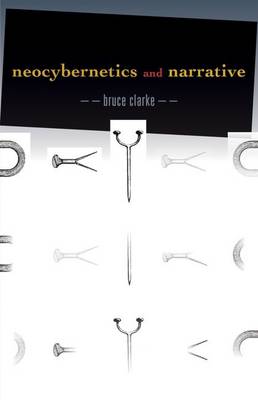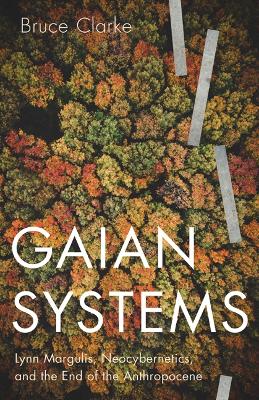Posthumanities
2 total works
Neocybernetics and Narrative opens a new chapter in Bruce Clarke’s project of rethinking narrative and media through systems theory. Reconceiving interrelations among subjects, media, significations, and the social, this study demonstrates second-order systems theory’s potential to provide fresh insights into the familiar topics of media studies and narrative theory.
A pioneer of systems narratology, Clarke offers readers a synthesis of the neocybernetic theories of cognition formulated by biologists Humberto Maturana and Francisco Varela, incubated by cyberneticist Heinz von Foerster, and cultivated in Niklas Luhmann’s social systems theory. From this foundation, he interrogates media theory and narrative theory through a critique of information theory in favor of autopoietic conceptions of cognition. Clarke’s purview includes examinations of novels (Mrs. Dalloway and Mind of My Mind), movies (Avatar, Memento, and Eternal Sunshine of the Spotless Mind), and even Aramis, Bruno Latour’s idiosyncratic meditation on a failed plan for an automated subway.
Clarke declares the era of the cyborg to have ended, laid to rest as the ontology of technical objects is brought into differential coordination with operations of living, psychic, and social systems. The second-order discourse of cognition destabilizes the usual sense of cognition as conscious awareness, revealing the possibility of nonconscious and nonhuman forms of sentience.
A groundbreaking look at Gaia theory’s intersections with neocybernetic systems theory
Often seen as an outlier in science, Gaia has run a long and varied course since its formulation in the 1970s by atmospheric chemist James Lovelock and microbiologist Lynn Margulis. Gaian Systems is a pioneering exploration of the dynamic and complex evolution of Gaia’s many variants, with special attention to Margulis’s foundational role in these developments.
Bruce Clarke assesses the different dialects of systems theory brought to bear on Gaia discourse. Focusing in particular on Margulis’s work—including multiple pieces of her unpublished Gaia correspondence—he shows how her research and that of Lovelock was concurrent and conceptually parallel with the new discourse of self-referential systems that emerged within neocybernetic systems theory. The recent Gaia writings of Donna Haraway, Isabelle Stengers, and Bruno Latour contest its cybernetic status. Clarke engages Latour on the issue of Gaia’s systems description and extends his own systems-theoretical synthesis under what he terms “metabiotic Gaia.” This study illuminates current issues in neighboring theoretical conversations—from biopolitics and the immunitary paradigm to NASA astrobiology and the Anthropocene. Along the way, he points to science fiction as a vehicle of Gaian thought.
Delving into many issues not previously treated in accounts of Gaia, Gaian Systems describes the history of a theory that has the potential to help us survive an environmental crisis of our own making.

